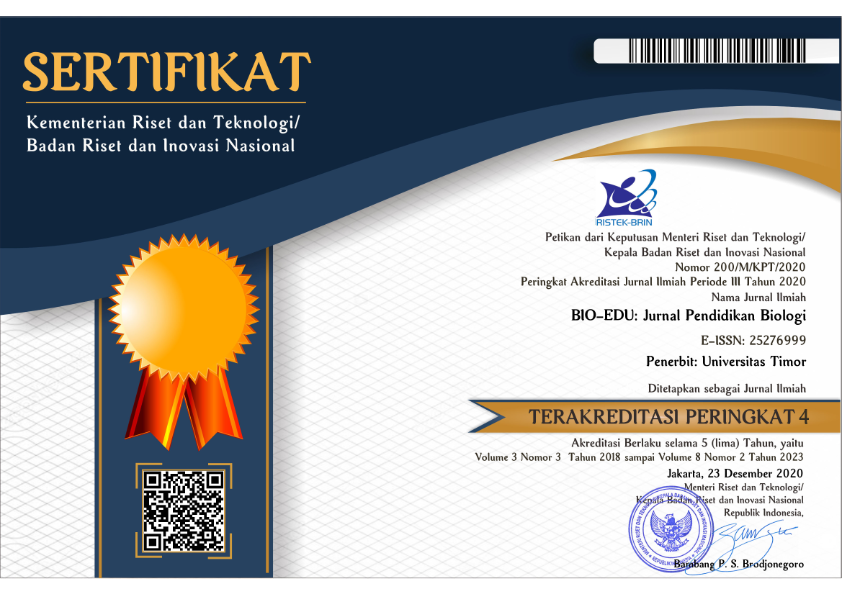ANALISIS KEMAMPUAN BERPIKIR KRITIS SISWA SMP DALAM MENYELESAIKAN SOAL TERKAIT MATERI HEREDITAS
DOI:
https://doi.org/10.32938/jbe.v7i2.2006Keywords:
Critical thinking ability, junior high school students, The question of heredity materialAbstract
Critical thinking is an ability that must be possessed by students because critical thinking is a basic skill needed in 21st century learning. In natural sciences, the problems that are often raised are environmental problems which are related to living things. By raising general problems that occur in the environment and living things, this can be used as an aspect of discussion in biology learning, such as in heredity material which studies how the inheritance of traits is passed down from parents to offspring and evidence of inheritance, as well as studying the determinants of genetic disorders. in living things. Students' critical thinking ability is assessed based on indicators of critical thinking skills consisting of interpretation, analysis, inference, evaluation, explanation, and self-regulation.The purpose of this study is to analyze the critical thinking skill of 9th grade junior high school students at SMPN 5 Kudus in solving problems question related to heredity based on measurement that is described from indicators of critical thinking ability. Of the 26 students, the average percentage of critical thinking skills in students from the six critical thinking indicators is 81% and belongs to the high category, because of the teacher's role in directing students to be able to improve their critical thinking skills and the characteristics of critical thinking skills that each student has.
Downloads
Published
Issue
Section
License
The Authors submitting a manuscript do so on the understanding that if accepted for publication, the copyright of the article shall be assigned to BIO-EDU: Jurnal Pendidikan Biologi and Departement of Biology Education, Universitas Timor as the publisher of the journal. Copyright encompasses rights to reproduce and deliver the article in all form and media, including reprints, photographs, microfilms, and any other similar reproductions, as well as translations.
BIO-EDU journal and Departement Biology Education, Universitas Timor, and the Editors make every effort to ensure that no wrong or misleading data, opinions, or statements be published in the journal. In any way, the contents of the articles and advertisements published in BIO-EDU are the sole and responsibility of their respective authors and advertisers.
Users of this website will be licensed to use materials from this website following the Creative Commons Attribution-ShareAlike 4.0 International License.



















